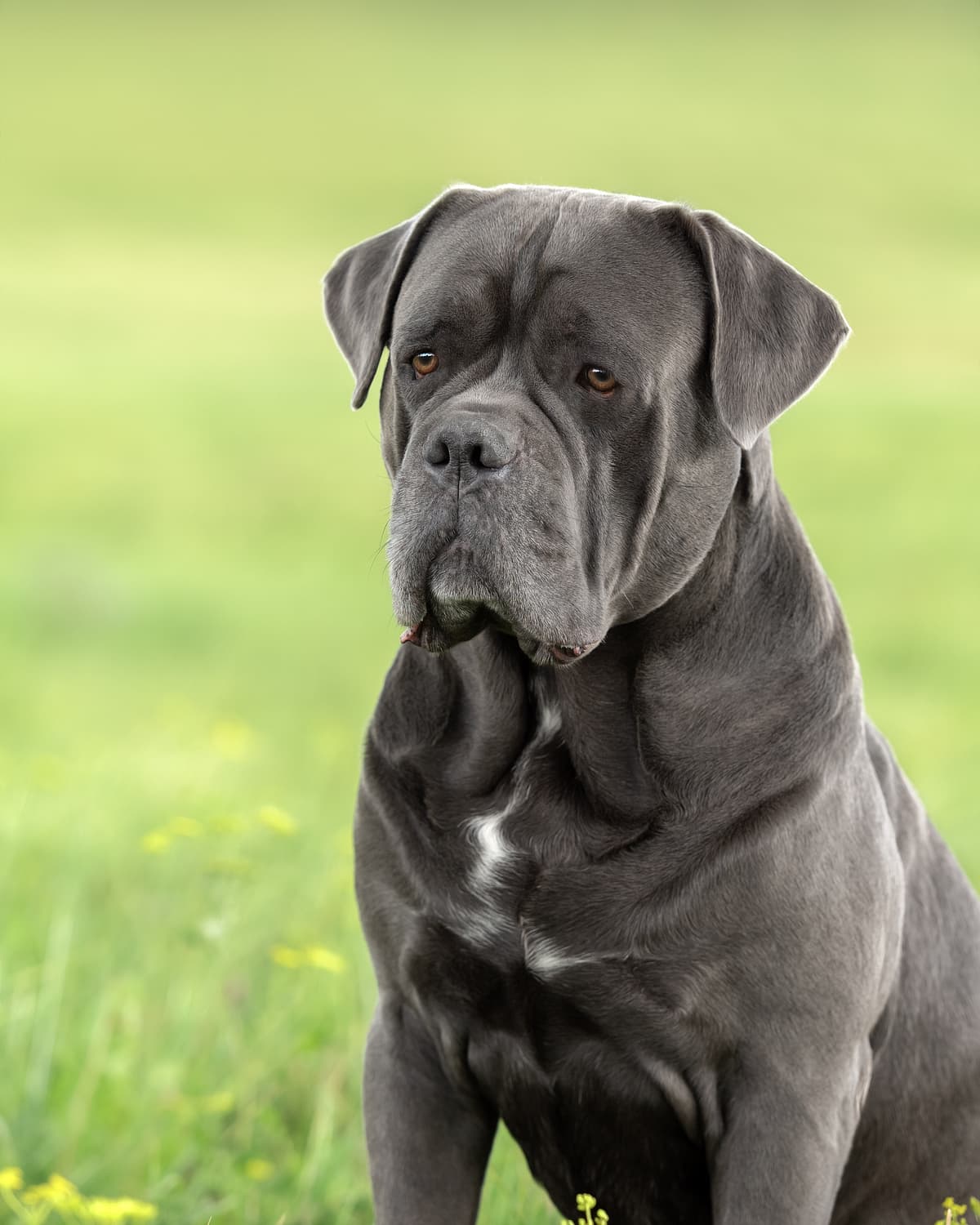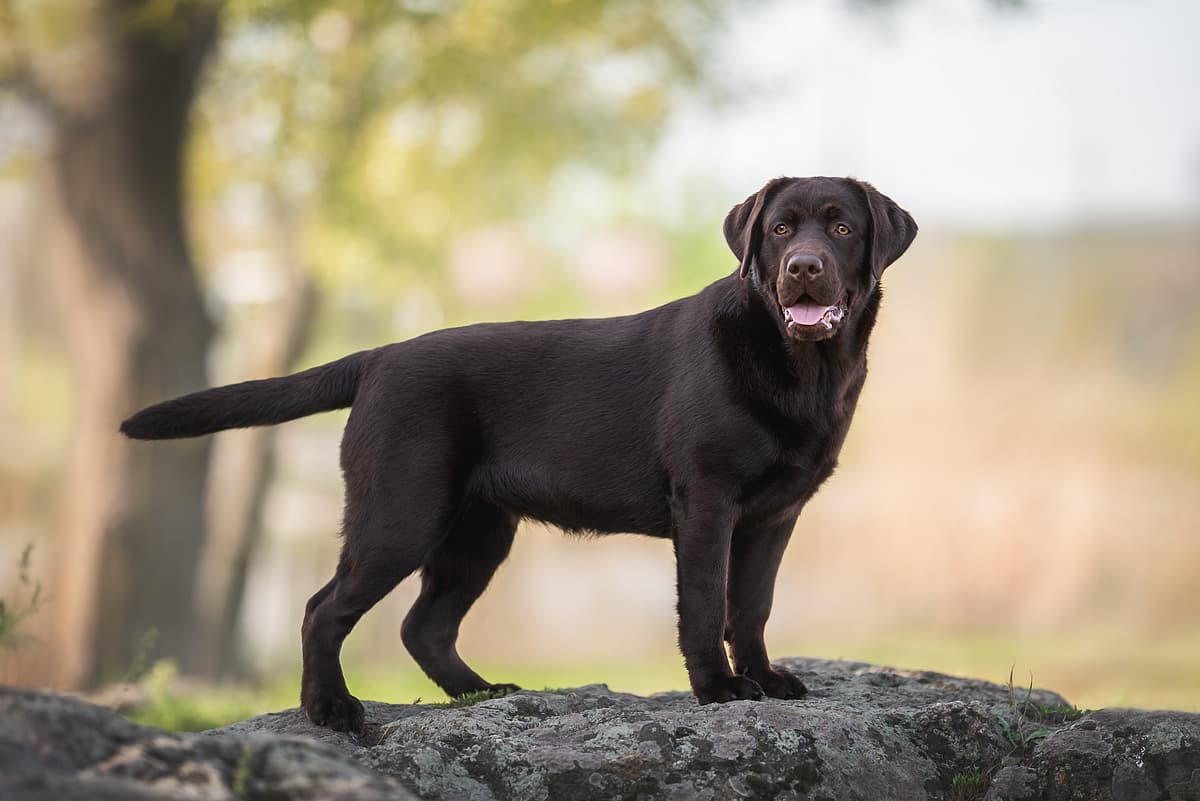Cane Corso vs Labrador Retriever
Discover the differences between Cane Corso and Labrador Retriever to make the best choice for your situation.
Try different breeds

Cane Corso
Powerful, loyal, and confident, this breed forms a deep bond with its family. Naturally protective and intelligent, Cane Corsos excel as devoted guardians and companions.

Labrador Retriever
Eager, friendly, and intelligent, this breed loves being part of an active family. Their gentle nature and loyalty make them outstanding companions for all ages.
Quick comparison
Large
45–50 kg
Short, dense
9–12 years
40–45 kg
High energy
Large
29–36 kg
Short double coat, water-resistant
10–12 years
25–32 kg
High energy
Personality & behavior
Compare the personality traits and behavioral characteristics of both breeds.
Cane Corso
Reserved, loyal with family, cautious with strangers
Quick learner, responds well to training
Active and needs regular exercise daily
Enjoys play but prefers purposeful activities
Adjusts best with consistent routine and leadership
Labrador Retriever
Warm and sociable with people and animals
Quick learner, responds well to training
High stamina, enjoys active pursuits daily
Loves games and interactive activities
Adjusts easily to new situations and environments
Care needs
Exercise, grooming, and daily care requirements
Cane Corso
Hip dysplasia, eyelid disorders
Labrador Retriever
Hip dysplasia, elbow dysplasia
Suitability
How well each breed fits different living situations and families
Cane Corso
Challenging for beginners
Requires experienced, confident handling and consistent training
Not ideal
Needs space and may become restless in small apartments
Highly suitable
Enjoys physical activity and thrives with regular exercise and engagement
Supervision needed
Large size and strength can unintentionally overwhelm small children
Depends on socialization
May show dominance or aggression toward other animals without early socialization
Poor fit
Dislikes being left alone and may develop behavioral issues if isolated
Labrador Retriever
Great choice
Patient and eager to please, Labradors are manageable for most first-time owners.
Not ideal
Labradors need space and exercise, so apartments can limit their activity needs.
Perfect fit
High energy and stamina make them excellent for active individuals or families.
Highly suitable
Gentle temperament and playful nature make them safe and loving with young children.
Very friendly
Generally sociable and get along well with other dogs and pets.
Prone to anxiety
Extended alone time can lead to boredom and destructive behaviors in this breed.
Breed strengths
What each breed excels at and their best qualities
Cane Corso
- Protective instincts make excellent family guardians
- Highly trainable with consistent leadership
- Loyal and deeply bonded to owners
- Athletic and excels in canine sports
- Minimal grooming required for coat maintenance
Labrador Retriever
- Friendly and sociable with people and dogs
- Highly trainable and eager to please
- Excellent with children and families
- Strong retrieving and swimming abilities
- Generally adaptable to various living situations
Challenges & considerations
Potential challenges and considerations for each breed
Cane Corso
- Needs extensive socialization to prevent aggression
- Can be wary of strangers and guests
- Requires significant daily physical exercise
- Not suited for inexperienced dog owners
- Prone to dominant or stubborn behavior
Labrador Retriever
- Prone to obesity without portion control
- Can become destructive if under-exercised
- Heavy seasonal shedding requires regular grooming
- May develop hip or elbow dysplasia
- Needs significant daily physical activity
Ready to choose your perfect breed?
Learn more about each breed or compare other breeds to find the perfect match for your lifestyle.
Discover more helpful tools
Make use of our other free tools to get the most out of your pet experience
